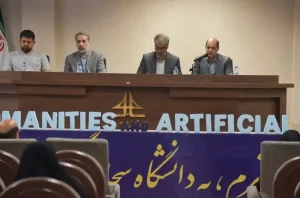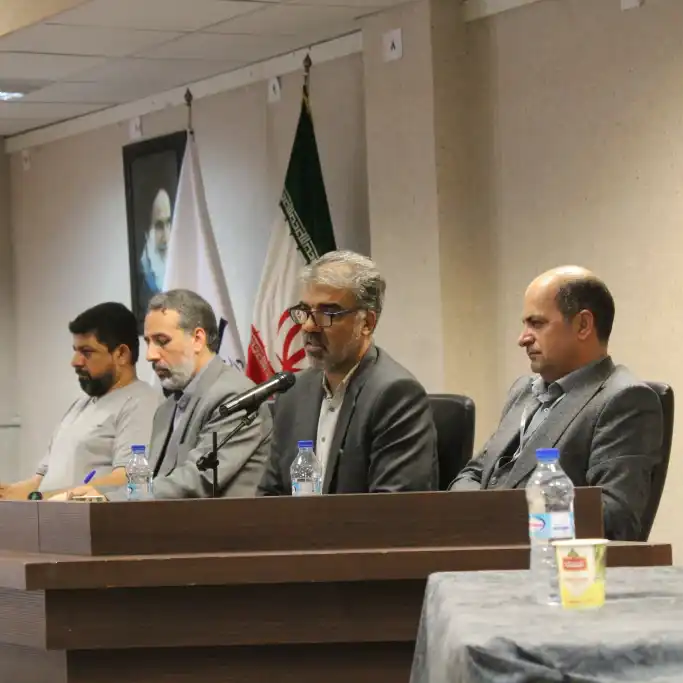On the sidelines of a conference dedicated to examining various dimensions of the interaction between the humanities and technology, a specialized panel titled "Humanities and Artificial Intelligence: Interaction or Confrontation?" was held with the participation of four prominent scholars in the field. The main objective of this roundtable was to explore different aspects of the impact of artificial intelligence on human intellectual, social, and academic structures.

Interaction Path
In part of the session, Dr. Hossein Akbari, Associate Professor of Sociology at Ferdowsi University of Mashhad, referred to the fundamental impacts of artificial intelligence on employment structures around the world. He stated that we are facing a new model of employment—one in which humans, rather than playing a direct role, are increasingly positioned alongside machines and AI-driven technologies. He described this transformation as a new form of labor market organization.
Additionally, Dr. Seyed Hadi Zorqani, Associate Professor of Geography at the same university, creatively likened artificial intelligence science to a cake whose raw materials are the vast amounts of data accumulated over many years. He emphasized that before the development of AI analytical tools, humanity was unable to utilize these information resources. However, with the advent of this technology, data became accessible and analyzable, enabling humans to better prepare for future challenges.
Dimension of Confrontation
On the other side of the discussion, Dr. Ne’matollah Firoozi, Assistant Professor of Theology and faculty member of the Quranic Sciences and Hadith Department at Imam Reza (A.S.) International University, warned about the consequences of excessive reliance on artificial intelligence. He emphasized that if the human mind becomes dependent on AI tools, the ability for creativity and independent thinking will gradually diminish—posing a serious threat to the human mind and its intellectual autonomy.
Dr. Firoozi also pointed out the scientific harms of this technology, stating that in some cases, writing articles and theses is done in a purely mechanical way without intellectual innovation. He emphasized that this trend can be particularly harmful in the humanities, which require critical thinking and reasoning. According to him, adhering to ethical principles and promoting a culture of responsible technology use are fundamental solutions to counter these threats.
Technology: Servant or Master?
Continuing the panel discussion, Mehdi Anjidani, founder of Virasti and the Gap messenger, offered a critical perspective on the development and distribution of emerging technologies, including artificial intelligence. He cited traditional and widely used tools—such as drills or washing machines—as examples of foundational technologies that serve users and are equally accessible to all.
In contrast, emerging technologies like artificial intelligence are built on centralized, platform-based structures that grant full control of user access to the owners of these technologies. According to Anjidani, this structure results in the responses and services users receive from such platforms varying based on geographic location or other social variables. For instance, the answer provided by an AI model like ChatGPT to the same question may differ significantly from one country to another.
He warned that this approach to technological development not only reduces users to mere consumers, but also widens a deep global technological divide. This divide, he noted, could lead to social control by a small group of technology owners—an elite shaping humanity’s future using data infused with social biases.
The Strategic Role of the Humanities
At the conclusion of the session, the speakers emphasized the crucial role of the humanities in addressing the phenomenon of artificial intelligence. They identified disciplines such as sociology, philosophy, psychology, and theology as powerful tools for shaping culture, guiding society, and enhancing public understanding of this emerging technology—fields that can play a key role in steering this interaction in the right direction.


